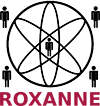LEA use of outcomes from the ROXANNE project
ROXANNE, from the initial proposal over 4 years ago to the final platform and tools, has sought to meet the requirements as set out by the LEAs involved in the project. So, the obvious question to ask is – has the consortium met the needs of the LEAs? The answer – the platform and tools have gone through development and, at the time of writing this blog, is close to the final evaluation phase. From the writer’s perspective, the platform and integration of developed tools has met the requirements as initially set out in some of the first deliverables (reports) of the project, the current version of the platform when tested against the synthetic data shows expected links and translations in an easy to understand format.
Continuing on with seeking how ROXANNE can be used, the next question to be addressed is - will the platform and tools be utilised after the formal conclusion of the project? The answer to this question is critical for the technical partners, coordination team and European Commission Research Executive Agency. From an LEA perspective it is a difficult one to answer. From the writer’s perspective, typically those involved in the research and project are not those who procure new systems for an LEA. For large LEAs, the procurement and integration of new software and systems is complex with strict regulations and processes to follow to ensure all public funding is used effectively and fairly.
So how does the ROXANNE project convert its project success into commercial success? The project has a dedicated work package and tasks to focus specifically on exploitation. On the ROXANNE website deliverable (D) 9.3 is available with further reports will be made available relating to this topic. The key for LEAs are the software tools and training that will be available in the coming months from the technical partners. As an operational LEA charged with safeguarding the public from exploitation from organised criminals, the type of tools and platform developed within the project is what is needed to enable LEAs to legally, ethically and, most importantly, effectively investigate criminal activities.

